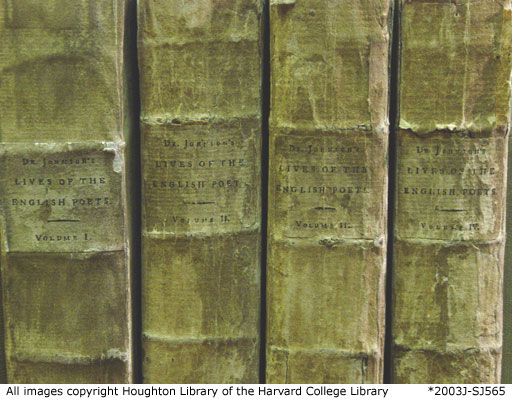I found the following rather extraordinary denunciaton on the front endsheet of an otherwise unremarkable book of poems. There is no provenance information in this copy, and nothing to suggest what the origin of the poem is, or at whom its vitriol is aimed.
“Verses to the author of a letter in the public advertiser, signed Graystock: &[?] refused admittance into that paper
What wretched Grubstreet scribbler of the day,
Who prostitutes his venal pen for pay,
At Surry dares the envenomed shaft to aim,
And with invective loads his patriot name.
That the firm virtues of his generous mind
Defy a host of foes like thee combined,
Miscreant, take back thy charge of infamy,
Sot, slave, & coward, thou art all the three.
Base sot, in cellars bred, in brothels spawn’d,
Vile slave, whose principles for bread are pawn’d,
Impotent coward, skulking from the light,
Whose poniard* like the assassin’s stabs by night.
Come forth, grim phantom, & a form assume,
Burst the dark shelter of thy native gloom;
And mark me when thou darst a man appear
A man shall meet thee–till then thy sincere
Despiser”
*(from Johnson’s Dictionary) Poniard: A dagger; a short stabbing weapon. “She speaks poniards, and every word stabs” (Sha.)
Google, Granger’s Index to Poetry, and Eighteenth Century Collections Online have all failed to turn up the source of this first-class invective, leaving me to wonder if the poem is original to my book. Do any Catablog readers recognize the source of this screed, and if so, who was on the receiving end? Send me an email if you know the answer.




